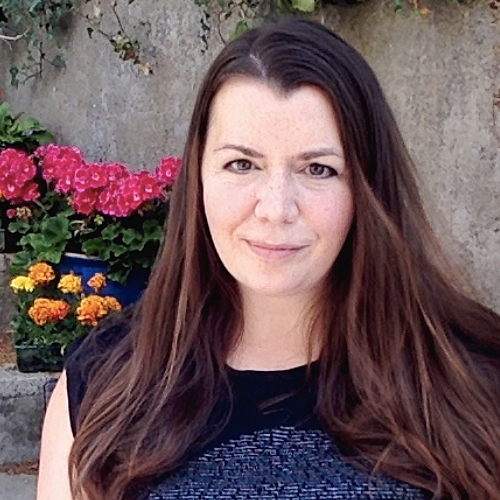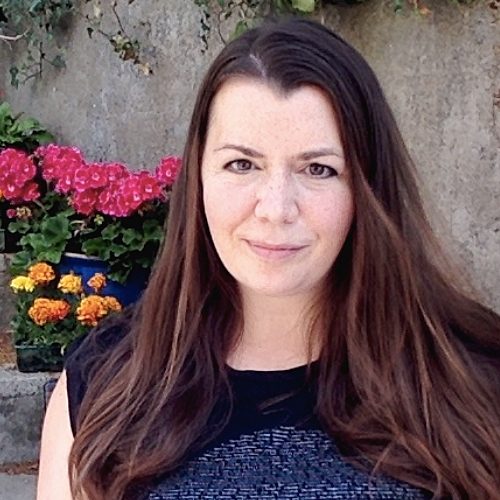
Breastfeeding as a Public Health Issue: Do We Have the Right Approach?
The majority of women should be able to breastfeed, but elements of their experience are ultimately stopping them from doing so. Breastfeeding works best when done responsively but many psychological, social and cultural factors work directly or more subtly against responsive feeding, meaning that many mothers experience difficulties with breastfeeding which can lead to premature weaning. These factors can include separation of mother and baby, a lack of understanding of breast milk production, public attitudes and wider pressures of motherhood to name a few. If we want to support mothers to breastfeed we must understand and target these wider factors to create a supportive breastfeeding environment. It is important however that our approaches to breastfeeding promotion and education are perceived positively by mothers in order for them to be effective. In this presentation I'll be addressing the common barriers to breastfeeding and their impact, along with new research that looks at how mothers perceive common breastfeeding education messaging and what this research tells us about how we can change our approach to ensure our messages have the intended impact.
This lecture was originally offered at our 2017 GOLD Lactation Conference.


Professor Amy Brown is based in the Department of Public Health, Policy and Social Sciences at Swansea University in the UK. With a background in psychology, she has spent the last thirteen years exploring psychological, cultural and societal influences upon infant feeding decisions in the first year. Her research seeks to understand how we can shift our perception of how babies are fed away from an individual mothering issue to a wider public health problem – with societal level solutions. Dr Brown has published over 60 papers exploring the barriers women face in feeding their baby during the first year. She is a mother to three human children and three book babies: Breastfeeding Uncovered: Who really decides how we feed our babies, Why starting solids matters, and The Positive Breastfeeding Book: Everything you need to feed your baby with confidence. She is a regular blogger, aiming to change the way we think about breastfeeding, mothering and caring for our babies.
Topic: Breastfeeding Trauma: How Can We Recognise and Support Mothers Who Wanted to Breastfeed but Were Unable to Meet Their Goals? - [View Abstract]
Topic: How Can We Better Support Mothers Don’t Meet Their Breastfeeding Goals? - [View Abstract]
Topic: What Do Normal Infant Feeding Patterns Really Look Like? - [View Abstract]
Objective 1: Describe the importance of responsive breastfeeding
Objective 2: Analyze the complexity of human decision making around health
Objective 3: Describe the influence of psychological, cultural, and societal barriers to responsive feeding and therefore breastfeeding duration
The majority of women should be able to breastfeed, but elements of their experience are ultimately stopping them from doing so. Breastfeeding works best when done responsively but many psychological, social and cultural factors work directly or more subtly against responsive feeding, meaning that many mothers experience difficulties with breastfeeding which can lead to premature weaning. These factors can include separation of mother and baby, a lack of understanding of breast milk production, public attitudes and wider pressures of motherhood to name a few. If we want to support mothers to breastfeed we must understand and target these wider factors to create a supportive breastfeeding environment. It is important however that our approaches to breastfeeding promotion and education are perceived positively by mothers in order for them to be effective. In this presentation I’ll be addressing the common barriers to breastfeeding and their impact, along with new research that looks at how mothers perceive common breastfeeding education messaging and what this research tells us about how we can change our approach to ensure our messages have the intended impact.
Accreditation
CERPs - Continuing Education Recognition Points GOLD Conferences has been designated as a Long Term Provider of CERPs by the IBLCE--Approval #CLT114-07 1.25 CERP (1.25 L-CERP)
If you have already participated in this program, you are not eligible to receive additional credits for viewing it again. Please sent us an email to [email protected] if you have any questions.
Additional Details
Viewing Time: 2 Weeks
Tags / Categories
(IBCLC) Education and Communication, (IBCLC) Psychology, Sociology, and Anthropology, Breastfeeding Advocacy
How much time do I have to view the presentations?
- The viewing time will be specified for each product. When you purchase multiple items in your cart, the viewing time becomes CUMULATIVE. Ex. Lecture 1= 2 weeks and Lecture Pack 2 = 4 Weeks, you will have a total of 6 weeks viewing time for ALL the presentations made in that purchase.
- Time for viewing the talks begins once you purchase the product. For Live Webinars & Symposiums, the viewing period begins from when the live event takes place. Presentations can be accessed 24/7 and can be viewed as many times as you like during the viewing period.
What are bundled lectures?
- Presentations may be available individually or via a bundled package. Bundled lectures are a set of lectures that have been put together based on a specific category or topic. Some lectures will be available in both individual and lecture form, whereas others will be available only via a bundled lecture pack.
Will there be Handouts?
- YES! Each lecture comes with a PDF handout provided by the Speaker.
Some lectures include a Q&A, what does that mean?
- During our online conferences, presentations that occur live are also followed by a short 15 minute Question & Answer Session. The Speaker addresses questions that were posted by Delegates during the presentation. We include the recording of these Q&A Sessions as a bonus for you.
How can I receive a Certificate?
- If this presentation offers a certificate, once you are done viewing the lecture or the lectures within a bundle, submit your attendance record in order to be able to download your certificate. You'll be able to see which credits are offered for the lecture by hovering over the "Credits Available" link within the "Speakers & Topics" tab.
Professionals that selected this package also viewed

|
|

|







